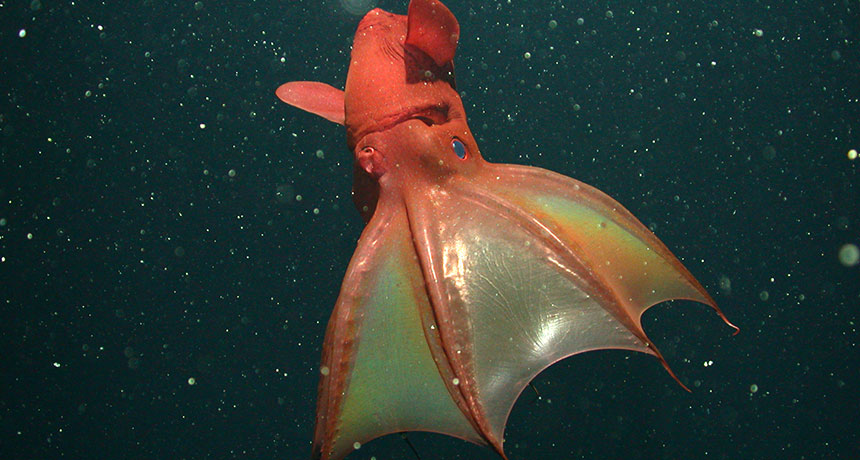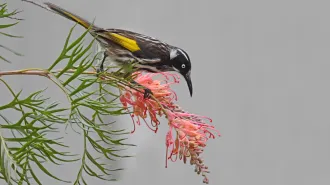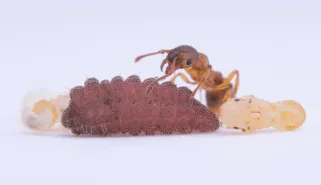Vampire squid take mommy breaks
Garbage dinners and stale water make life tough in the deep sea

DEFYING PERCEPTION Sensationalism strikes Latin names too. Vampyroteuthis infernalis, “vampire squid of hell,” is neither a vampire nor a normal squid.
© 2004 MBARI






